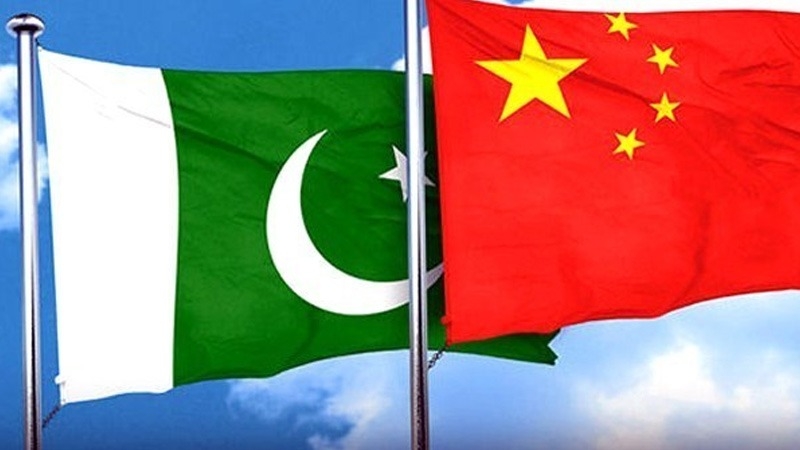AidData, a research institute at William and Mary University in the US, said that Pakistan’s cumulative public debt exposure to China from 2000 to 2021 was USD 67.2 billion….reports Asian Lite News
China in the past 20 years lent about USD 21 billion more than previously thought to Pakistan, Nikkei Asia reported, citing a study revealed this week. According to the study, Pakistan has the biggest China-funded energy portfolio in the world.
AidData, a research institute at William and Mary University in the US, said that Pakistan’s cumulative public debt exposure to China from 2000 to 2021 was USD 67.2 billion. The number surpassed the USD 46 billion recorded for the same period in the World Bank’s International Debt Statistics on the basis of voluntary disclosures from Pakistan, Nikkei Asia reported.
The Global Chinese Development Finance report released on Tuesday comes amid growing scrutiny of Beijing’s lending, particularly with regard to infrastructure projects funded by the Belt and Road Initiative (BRI) in the fragile economies of the Global South. The researchers have found that “Beijing is navigating an unfamiliar and uncomfortable role as the world’s largest official debt collector,” with 80 per cent of its lending involving nations facing financial distress.
Pakistan, home to BRI project’s flagship China-Pakistan Economic Corridor (CPEC), is a prime example. Pakistan is third-largest recipient of Chinese loans, after Russia and Venezuela, according to the data. Pakistan, which has been facing a political crisis and heavy inflation, obtained a USD 3 billion standby arrangement from the International Monetary Fund in 2023 to avoid a debt default.
The AidData report has calculated that public and publicly guaranteed debt (PPG), including loans for which the central government or its agencies are liable for repayment. For the study, the research lab used what it calls the Tracking Underreported Financial Flows (TUFF) methodology, drawing on 147,703 sources in more than 12 languages.
Speaking to Nikkei Asia, Bradley Parks, the executive director of AidData and an author of the report, said that the institute uses the Organisation for Economic Cooperation and Development’s definition of an “official sector” creditor, which encompasses any lender that is majority-owned by the government of the creditor country.
However, Stella Hong Zhang, a China public policy postdoctoral fellow at the Harvard Kennedy School’s Ash Center, stressed that AidData uses a broader-than-usual definition of PPG debt, causing larger figures for some countries, according to Nikkei Asia report.
Defending the method used by AidData, Bradley Parks stressed that China’s loans to Pakistan often enter the front door as short-term debts with maturity of a year or less. However, they exit the back door as long-term debts, the report said.
He said, “Rolling over debts with [maturities] of 12 months or less, year after year, is effectively a loophole in international reporting rules that allows governments to underreport their true levels of public debt exposure to China,” Nikkei Asia reported.
A major portion – USD 28.4 billion of China’s loan to Pakistan was in the energy sector, according to the data found by AidData. Experts think Pakistan sought China’s support in energy sector, accumulating the largest amount of Chinese energy financing of any country.
Ammar A Malik, a senior research scientist at AidData and co-author of the report, said that China’s loan to Pakistan in the energy sector was a direct response to Pakistan Democratic Movement (PDM) government’s focus on addressing the country’s crippling power shortages.
Stella Hong Zhang said that even though “China’s priority was in the connectivity projects.” However, Pakistan’s government wanted much of the initial CPEC funding in the energy sector. In recent years, Pakistan has struggled to pay its power bills to China. The data in the report has direct relevance to Pakistan’s election set to be held next year.
Of the total finance of USD 67.2 billion, USD 36 billion was accumulated under the Nawaz Sharif-led PML-N government, which was in power from 2013 to 2017. Sharif recently returned from years of self-imposed exile in London to help the party in its campaign for elections, apparently with the tacit support of Pakistan’s military, according to Nikkei Asia report.
Malik, who leads the Chinese Development Finance Program at AidData, said that the PML-N in Pakistan has always been the most forceful in claiming credit for bringing Chinese funding in Pakistan. Meanwhile, former Pakistan PM Imran Khan has been reputed for causing friction with China. Despite all this, China has been providing billions in funds to Pakistan in the past 20 years. (ANI)

Leave a Reply